Sleep deprivation is when there is a deficit in the amount of restorative sleep which keeps on piling up over a period of time and creates unwanted physiological and psychological symptoms and diminishes the performance levels at work. Sleep deprivation should not be confused with Insomnia. Insomnia is a condition when a person wants to sleep, but is unable to do so. Whereas, sleep deprivation is when a person is not getting the sufficient amount required for sleeping in a sound manner.
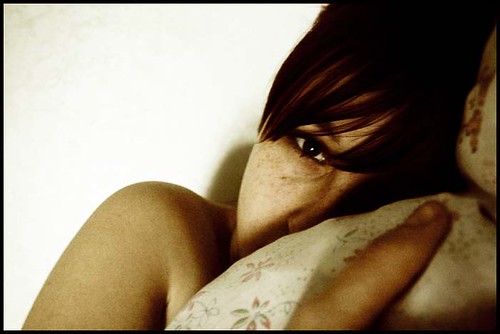
Sleep deprivation can cause a variety of problems like low alertness, malfunctioning of the limbs, hearing problems, fatigue, sleepiness during the day and obesity and weight fluctuations. The amount of sleep required by each individual is different, so the sleep deprivation also varies according to the different needs. Usually, the following is considered a regular and common sleep pattern:
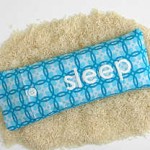 Babies require a sleep of around 16 hrs in a day.
Babies require a sleep of around 16 hrs in a day.- Toddlers require a sleep of around 12 hrs a day.
- Teenagers require a sleep of around 9 hrs a day.
- Adults require around 7 to 8 hrs of sleep in a day.
- Old people require around 5 to 6 hrs of sleep a day.
SIGNS OF SLEEP DEPRIVATION
-
You feel dizzy and depressed.
-
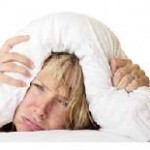 You feel sluggish and lazy. Start avoiding your daily chores.
You feel sluggish and lazy. Start avoiding your daily chores. -
Feel the hunger pangs all day along.
-
Indecisive and being confused are your regular traits now.
-
You get mood swings and cry on the weirdest of things.
-
You catch more infections like flu or suffer from headaches.
WHAT IS SLEEP DEBT?
Sleep debt is like an entry in the account named as ‘Total sleep’. This is the cumulative effect of lack of sleep over a long period of time. The deficient sleep creates a sleep debt, which causes unwanted symptoms in the body. Higher the amount of sleep debt, more the deterioration of the body functions and brain alertness.
COMMON TYPES OF SLEEP DISORDERS
- Insomnia: Insomnia is a condition when it becomes very difficult to initiate the process of sleeping or maintaining it. It produces a poor quality of the sleep. People may suffer from short term or chronic insomnia.
- Periodic limb movement disorder: This is a sleep disorder in which there is a constant movement in the limbs following a rhythmic pattern. It mostly affects the legs of the person suffering from it. These movements can happen in short periods or throughout the sleeping time.
- Sleepwalking: Walking activity or any other activity during the sleeping phase is characterized as sleep walking. People sometimes talk without making sense during the sleep mode.
- Restless leg syndrome: A person may suffer from immense pain in the legs. This leads to a painful condition of the legs. The leg pain is eases with the movement in the leg. This condition usually happens during early evenings or at late night.
- Sleep apnea: It is a breathing condition, when the airflow is blocked during the sleep. The breathing stops or gets reduced in this condition leading to lack of sleep or poor quality of sleep.
EFFECTS OF SLEEP DEPRIVATION
- Sleep deprivation can lead to a weaker memory. Brain is not alert which restricts the brain from grasping new types of information.
- Lack of sleep leads to depression. Our brain recharges and refuels itself during the sleep time, if there is a hindrance in sleeping, it can lead to anxiety and depressive disorders.
- Sleep problems can lead to a tired physical body. There is immense fatigue and drooping attitude.
- It can lead to an impaired performance and lack of concentration in the tasks. People start making more errors and accidents. The reaction time decreases which can cause an unavoidable harm.
- Not sleeping enough can create disorientation in people. They lose track of the time, season, year etc. And in extreme cases they start rejecting themselves.
- Hallucinations are another symptom of sleep deprivation. People imagine and visualize things which are not present there.
- Sleep deprivation can cause another terrible symptom, commonly known as Paranoia. This condition occurs, when a person is convinced that some external factor is after him to harm him in a certain manner. Sometimes in extreme cases people feel the symptoms of schizophrenia.
- Sleep deprivation can create a general feeling of being continuously unwell. There are digestive problems, general pain in joints, aches in other parts of the body etc.
WAYS OF DERIVING A GOOD NIGHT SLEEP
1. Keep a regular schedule: Always stick to a same bedtime regime to define a body clock. Our body automatically starts feeling sleepy around the time of sleeping. Try to manage the same routine on weekends to bring a discipline.
2. Follow a bedtime ritual: Start following a same pattern of things before going to the bed. Take a shower with hot water, or have some warm milk or read a good book.
3. Caffeine is a major ‘NO’: Before leaving for bed, do not drink a caffeinated beverage. This will stimulate the brain and will deter your sleeping pattern.
4. Do not take a mid-day nap: Avoid sleeping during daytime as it hinders the sleep at night. The brain feels fresh and active and doesn’t make one tired and sleepy for the night sleep.
5. Physical exercise: Try to take up some sort of physical exercise in a day. Physical exercise helps in improving the circulation in the body and helps in maintaining a healthy body and brain. Do not exercise too close to the sleeping time, as it can make the task of sleeping more difficult.
6. Avoid alcohol: Alcohol will not stop you from dozing off but it makes you uncomfortable during the night. People feel nauseated and thirsty in the middle of the night. Some people also experience headaches due to hangover.
7. Try keeping the room dark and well circulated: Sleep in a completely dark room, as light can make you uncomfortable. Keep the windows open to let fresh air circulate in the room. This will aid in a better sleep.
Basically, if you are sleep deprived, try some peaceful meditation activities before sleeping. Relax your mind and body and do not stimulate yourself. De-stress yourself completely and you will fall in a deep sleep soon….
——————————————————————-
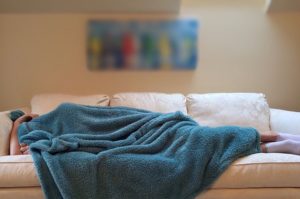

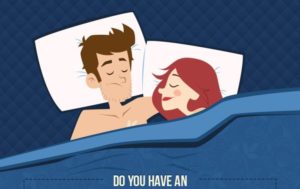
Awesome article. So informative and clear.